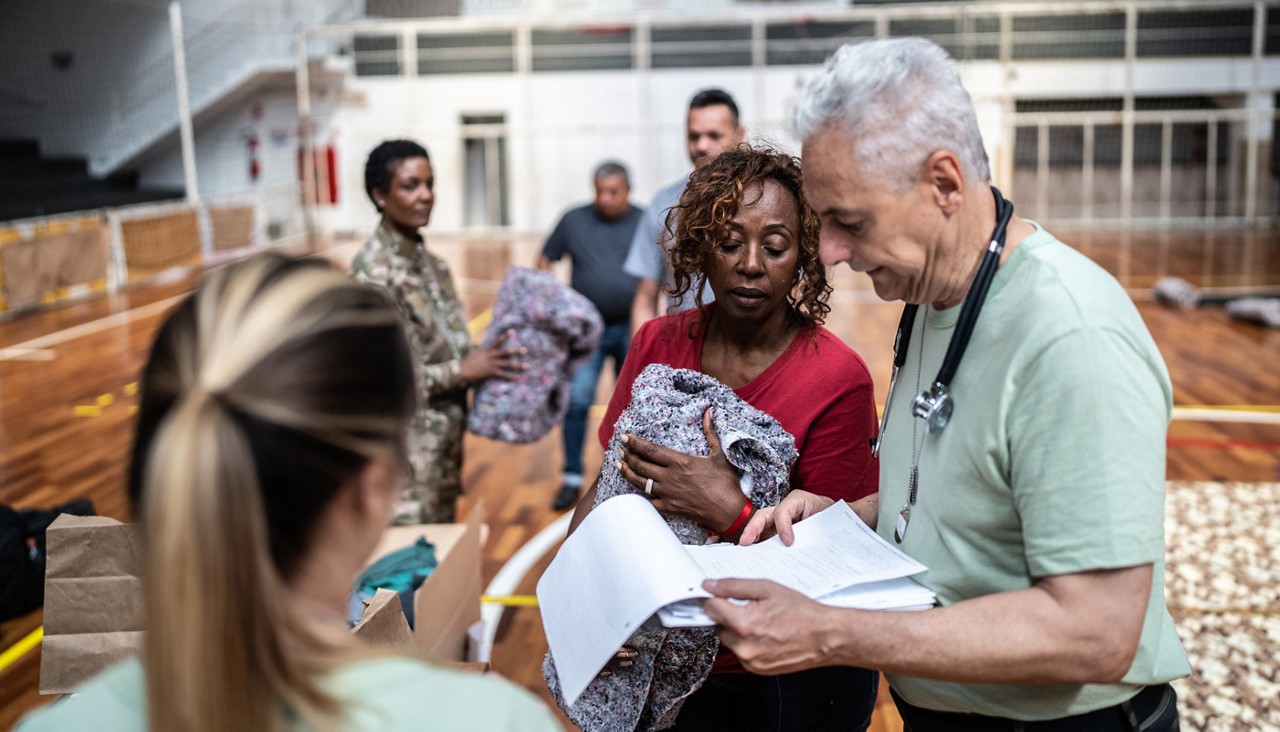To ensure you receive the best service possible,
please enter your zip code below:

As extreme weather and natural disasters continue to plague the United States, communities across the country are taking preparedness into their own hands.
Professional first responder resources can become overwhelmed during emergencies, and community-led emergency response teams have proven to be essential lines of defense. Not only do these teams support the community, but they also empower residents to make a positive difference in their neighborhood.

If you live in an area where hurricanes are a threat, be sure to review your insurance coverage with your AAA Insurance agent before a storm threatens to help ensure the policy adequately covers your needs.
Find an agentThe Federal Emergency Management Agency (FEMA) established the Community Emergency Response Team (CERT) program to train civilian community members in basic disaster response skills, including fire safety, search and rescue, team organization and disaster medical operations. These qualified individuals assist after a hurricane or other disaster when professional emergency response workers are overwhelmed.
Communities can offer a free 20-hour program to train and certify CERT volunteers. These programs typically conclude with a disaster simulation, where volunteers put their training into practice and discuss it afterward.
If your community doesn't offer such a program, you can request that your city government add it, or take the online course offered by FEMA and establish your own neighborhood response team.

The good news is that even without official training being offered in your area, you and your neighbors can establish a community response team to support one another in case of an emergency. Here are some steps to get you started:

Neighborhood response teams don't just fill in the gaps when emergency resources are stretched thin; they foster stronger connections and provide a shared purpose among residents.
You might not know when the next hurricane will be coming your way, but knowing you have a cohort of knowledgeable neighbors to support you when it does can alleviate anxiety and provide a sense of control.
These teams provide quicker response times to check on elderly neighbors, offer basic first aid, and even organize evacuations. Most importantly, they transform neighborhoods into resilient, tight-knit communities where people look out for one another, before and after the crisis.
Resilience starts on your block. Whether it’s organizing your first meeting or printing a neighborhood contact list, small actions today can make a life-saving difference tomorrow.
Be prepared
Stay ready for hurricane season with essential tips from AAA Insurance on preparing your home, vehicle and family before a storm hits.
This information is being provided for general informational purposes only. The Auto Club Group does not assume any liability in connection with providing this information.
Coverage is subject to all policy terms, conditions, exclusions and limitations. Discounts and savings opportunities subject to eligibility requirements. Subject to underwriting requirements. Prices may vary based on how you buy insurance, subject to availability in your state. AAA Insurance is a collection of AAA branded insurance products, services, and programs made available to qualified members. Personal lines insurance is underwritten by Auto Club Insurance Association (IL Auto, IL Home, MI Home), Auto Club Group Insurance Company (IA Auto, IA Home, IN Auto, IN Home, NE Auto, NE Home, WI Auto, WI Home), Auto Club Insurance Company of Florida (FL Package), Auto Club South Insurance Company (FL Auto), MemberSelect Insurance Company (GA Auto, GA Home, MI Auto, MN Auto, MN Home, TN Auto, TN Home), The Members Insurance Company (NC Auto, NC Home), and Universal Insurance Company (NC Auto, NC Home, SC Auto, SC Home). ©2025 The Auto Club Group. All rights reserved.
Colorado: Auto and Home Insurance provided by CSAA IG, a AAA Insurer.